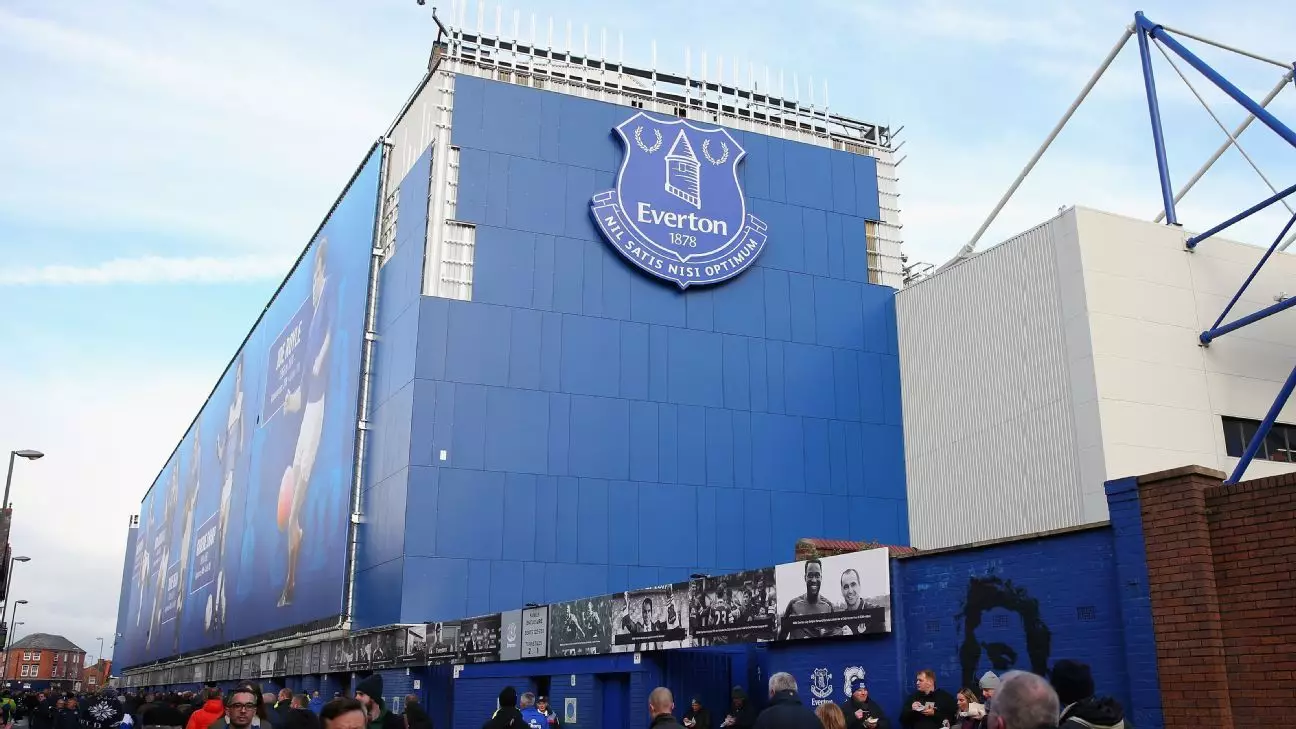The recent announcement regarding the Friedkin Group’s acquisition of a controlling stake in Everton Football Club marks a significant turning point for the beleaguered Premier League side. Having reached an agreement with Farhad Moshiri, the current owner, the Texas-based consortium, which is already entrenched in the sports world with its ownership of Serie A’s Roma, is poised to steer Everton towards a more stable future. The deal to take over Moshiri’s 94.1% stake not only suggests impending changes in leadership but also a commitment to restoring the club’s competitive edge.
Farhad Moshiri’s journey with Everton began in 2016 when he initially acquired a 49.9% stake. His investment strategies have faced heavy scrutiny over the years, culminating in a full ownership increase by January 2022. Moshiri’s ambition, evidenced by a capital influx of £100m, was overshadowed by unfulfilled promises and mounting financial pressures, especially after Everton faced points deductions due to breaches of the Premier League’s Profitability and Sustainability Rules. The succession of ownership changes and unfinished agreements—including a failed acquisition deal with Miami-based 777 Partners—exemplifies the challenging landscape Moshiri has navigated.
With the Friedkin Group stepping in, there is cautious optimism surrounding the potential for revitalization at Everton. Early statements from the consortium have emphasized a commitment to not just maintaining the club’s historic identity, but also advancing its infrastructure, particularly with the long-anticipated new stadium at Bramley-Moore Dock. The assertion that they aim to become “custodians” of the club indicates a philosophy centered on stewardship rather than mere profit-making, which could resonate positively with fans eager for stability and direction.
Challenges Ahead
Despite this fresh approach, challenges remain daunting. Currently nursing the pain of a dismal start to the season, with only one point after five games and sitting near the bottom of the table, the team’s performance on the pitch will be a pressing concern for the new owners. Historic clubs like Everton require more than financial backing; they need a cohesive strategy that encompasses player recruitment, management, and the nurturing of talent. The Friedkin Group will undoubtedly this aspect as it seeks to reassure fans and stakeholders alike of its commitment to the club’s long-term success.
The intricate dynamics of club ownership in football illustrate how external investments can significantly alter a club’s trajectory. For Everton, the Friedkin Group’s acquisition represents not just a financial transaction, but a potential reshaping of its identity and future in the competitive landscape of English football. As the club navigates this transitional phase, supporters will be keenly watching to see if these new custodians can translate their ambitions into tangible success.

